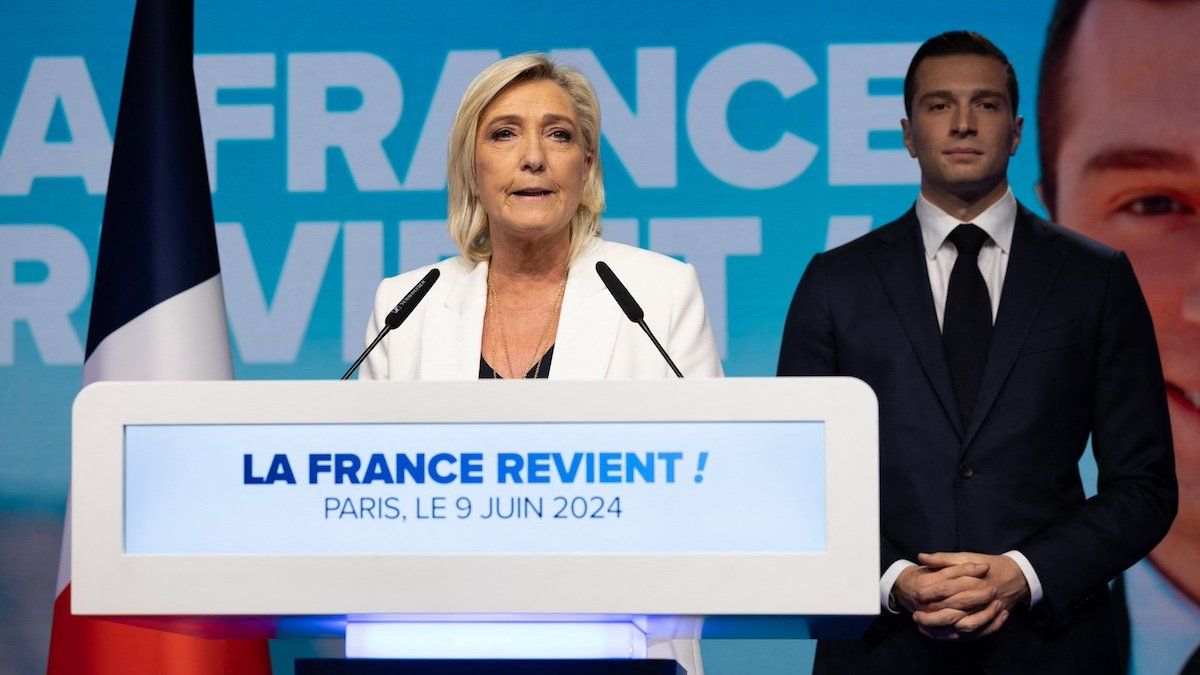Europe took a hard right turn in European Parliament elections this weekend, dealing a substantial blow to key EU leaders German Chancellor Olaf Scholz and French President Emmanuel Macron, prompting the latter to call early elections.
In France, Marine Le Pen’s far-right National Rally party surged to 31.5% support – more than twice as much as Macron’s Renaissance coalition, with 14.5%. Close behind are the Socialists and their lead candidate Raphaël Glucksmann with 14%.
A sober-looking Macron took to French television to dissolve parliament and called for elections on June 30, with a second round on July 7. The outcome of the EU elections, he said, was “not a good result for parties who defend Europe.” This is a gamble for Macron: A similar far-right wave in the French parliamentary election could see his party lose its majority.
In Germany, projections show the far-right Alternative for Germany set to secure second place with 16.5% of the vote, a record high. Support for Scholz’s Social Democratic Party and coalition partner Free Democratic Party declined, securing 14% and 5% of the vote, respectively. And Germany’s Greens took the biggest hit, dropping a whopping 8.5 percentage points to 12%, as cash-strapped voters spurned costly environmental policies.
Coalition time: Post-election, European political parties realign in
blocs in the EU Parliament. The largest, the center-right European People’s Party, has recently
shifted right on issues of security, climate, and migration, and could swing further to the right if joined by
Giorgia Meloni’s far-right Brothers of Italy. Another scenario would see Meloni’s group and other far-right parties such as
Viktor Orban’s Fidesz party stay with the
more hard-line European Conservatives and Reformists group, or become part of a new hard-right group that could form the wake of the elections. We’ll be watching the horse trading as coalitions take shape.
